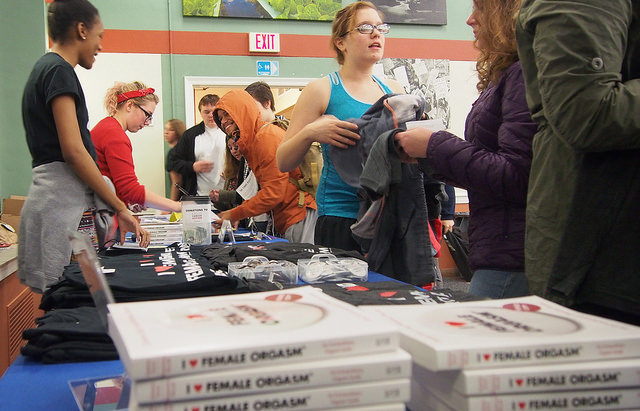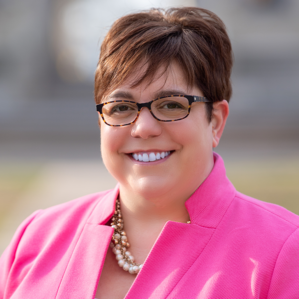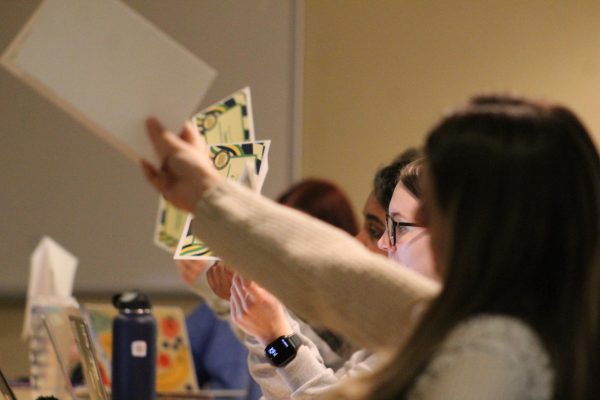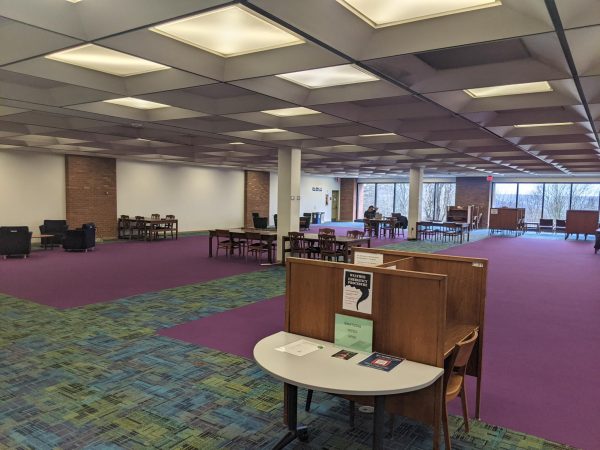I Love Female Orgasm comes back to campus
Students arrive for the I Love Female Orgasm event hosted by Allegheny’s Reproductive Health Coalition in Schultz Banquet Hall on Monday, Oct. 19, 2015.
Almost 200 people packed Schultz Banquet Hall on Monday, Oct. 19 to for the I Love Female Orgasm event, sponsored by the Reproductive Health Coalition.
As students took their seats “handpicked female O songs” played in the background. The event was meant to be a sexual education class, but this was not high school sex education with its emphasis on the risks of sex, this was pleasure based sexual learning.
The event was the subject of controversy at Allegheny in 2012 when it was held in Ford Chapel, a decision that lead to national media attention.
The program was led by Marshall Miller and Kate Weinberg from Sex Discussed Here, an organization which does similar programs at college campuses around the country and seeks to end the stigma which surrounds discussions about sex and sexuality.
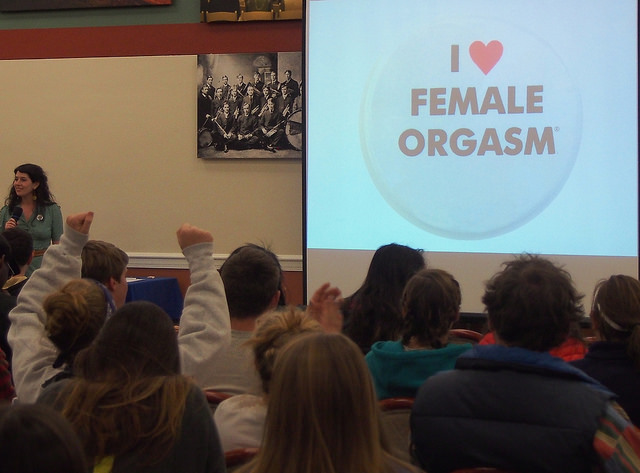
Students arrive for the I Love Female Orgasm event hosted by Allegheny’s Reproductive Health Coalition in Schultz Banquet Hall on Monday, Oct. 19, 2015.
Wienberg began the program by thanking everyone in the audience for coming, pausing a moment for the laughter that accompanied the statement.
“We are going to have time to laugh tonight,” said Weinberg.
Weinberg and Miller said that too often sex education classes are taught seriously and without any time spent on how to make sex pleasurable for both parties. Miller said in many classes the clitoris is simply omitted from diagrams of the female anatomy.
Miller compared the way in which sex is taught in some high schools to teaching driving education by only talking about the dangers of the road and without showing students where the gas and brake pedals are. In addition to making sex more pleasurable, Weinberg said having this self-awareness of one’s body has physical health benefits.
“If we don’t have access to this type of knowledge how are we going to have the self-awareness to see the signs of an STI?” Weinberg said.
The program worked to address some of the issues which sexaul partners commonly face, including the difference in the amount of time it takes for males and females to reach orgasm during intercourse.
While the program focused on embracing sexuality, Miller and Weinberg also took the time to address psychological issues such as post traumatic stress from sexual abuse, that might make sex more of a trigger for bad memories then a pleasurable experience.
“If you try and experience sexual pleasure and all these traumatic memories are coming back that can be a real problem,” said Miller.
Both Miller and Wienberg encouraged anyone with these types of experiences to seek counseling, giving attendees several resources including books and websites to help.
Miller said he hopes what students can take away from the program is that sex is not something that should be stigmatized. He said it is something which should be discussed openly.
“We want people to leave with the idea that sex is something good to learn about, whether you plan to put that knowledge to use right away or not,” Miller said.
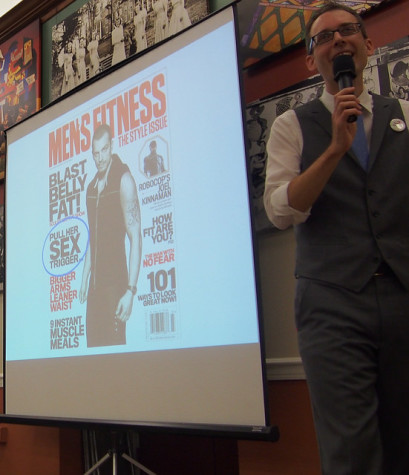
Jesikah Leeper, ’16, president of ReproCo said she was pleased with the number of people who turned out and the diversity of the audience.
“We were really excited to see the number of men who attended,” Leeper said.
Leeper said having so many people at the event was something the organization had been hoping for. She said the issue of sex and sexuality is something which should be discussed openly in society.
“This is part of your society’s conversation that has to be had with a lot of people,” Leeper said.
Leeper said this is not the first time the program has been on campus. Most recently, she said the program was hosted at Allegheny in 2012. Because of how well it was received by those who attended, ReproCo has been working to bring it back. Leeper said this year seemed to be the perfect opportunity as the majority of current students were not enrolled for the 2012 event, so had never seen the presentation.
If we don’t have access to this type of knowledge how are we going to have the self-awareness to see the signs of an STI?
— Kate Weinberg
“Now we have a whole new generation of students who have seen them,” Leeper said.
Leeper said she hopes what people took away from the program is the knowledge that they can embrace and have power over their own sexuality. She said this is especially important for women who are often not encouraged to express their sexuality.
“[It promotes] this idea that this is actually yours, that you have some autonomy over your own sexuality,” she said.
Leeper said that later in the academic year, ReproCo hopes to partner with the Center for Political Participation to host a program on the debate which currently surrounds birth control in the United States.



